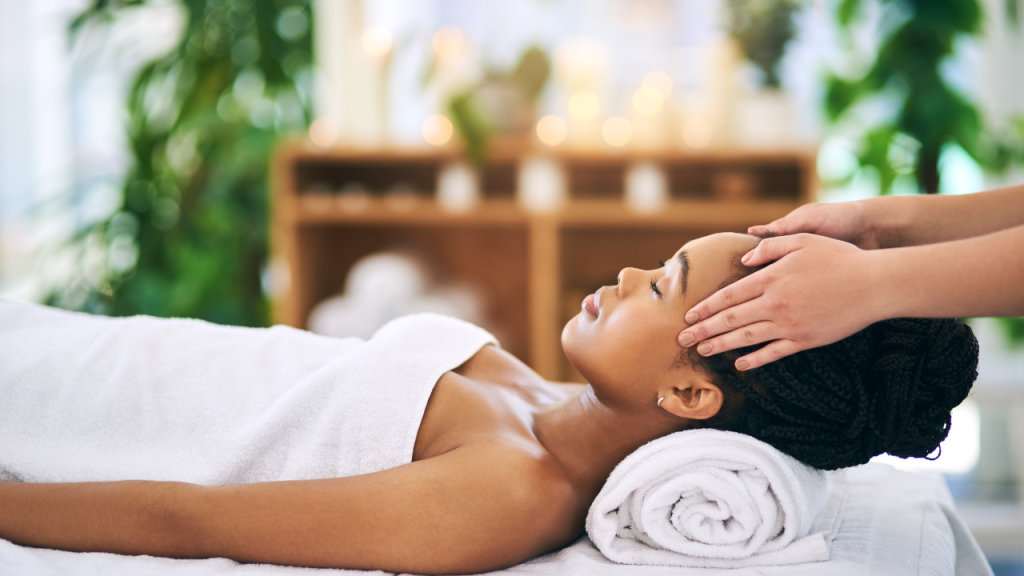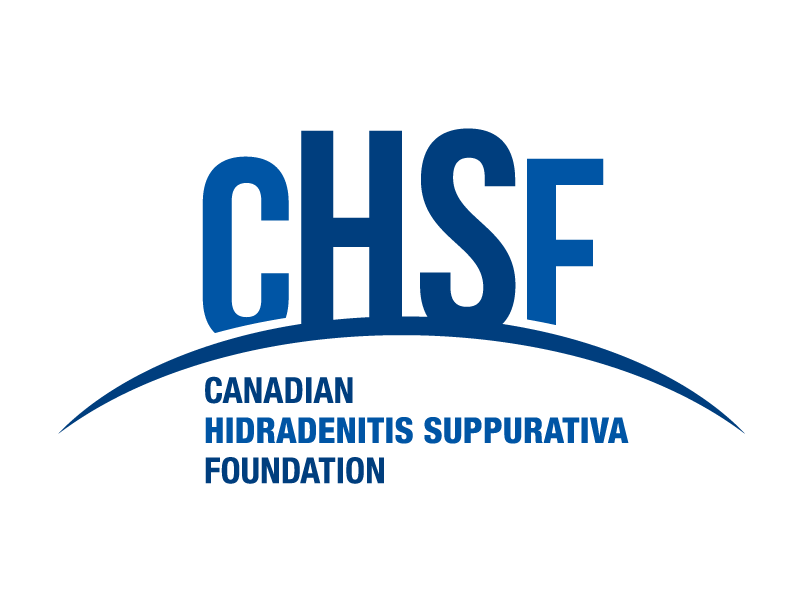Living with Hidradenitis Suppurativa (HS) often involves managing not only the physical symptoms but also the chronic pain that frequently accompanies flare-ups. At our foundation, we strive to support our community by offering educational insights on various methods to manage this inflammatory skin condition holistically. Recognizing that each individual’s experience with HS is unique, we focus on providing a broad spectrum of strategies that can be tailored to meet personal needs and preferences.
This approach includes delving into holistic pain management techniques that encompass more than just medication. By understanding and integrating these methods, individuals can gain control over their symptoms and improve their quality of life. We explore how dietary changes can influence well-being, the role of mind-body practices in severe pain relief, and how these holistic methods can effectively complement traditional medical treatments.
Overview of Holistic Pain Management Techniques

Exploring holistic pain management techniques remains a top priority in our ongoing effort to enhance the quality of life for patients with Hidradenitis Suppurativa. Holistic medicine focuses on balancing all aspects of a person’s well-being, encompassing physical, emotional, and environmental factors.
For those dealing with HS, incorporating holistic pain management strategies can provide significant relief and improve overall health. Techniques such as acupuncture, which involves the insertion of fine needles into specific body points, can reduce inflammation and alleviate pain. Additionally, aromatherapy uses essential oils to promote health and well-being, potentially reducing stress and severe pain associated with HS. We routinely evaluate these techniques for their effectiveness and compatibility with traditional treatments, aiming to provide a comprehensive approach to pain management in HS.
Diet and Nutritional Strategies to Alleviate HS Symptoms
Diet plays a crucial role in managing the symptoms of Hidradenitis Suppurativa, and we are committed to providing evidence-based nutritional advice to support our community. An anti-inflammatory diet may particularly benefit individuals with HS, as inflammation is a key factor in the condition. Including foods rich in omega-3 fatty acids like salmon, flaxseeds, and walnuts can help reduce inflammation levels. Similarly, a high intake of fruits and vegetables can provide antioxidants that combat oxidative stress.
On the other hand, limiting the intake of refined sugars and dairy products is advisable, as they can potentially worsen inflammation. We encourage our patients to experiment with these dietary changes to identify what best alleviates their symptoms, keeping in mind that individual responses can vary. Each person’s journey with HS is unique, so dietary approaches should be personalized to meet their specific needs.
Mind-Body Practices for Managing HS-Related Pain
As we navigate the complexities of Hidradenitis Suppurativa, it’s essential to recognize the profound impact that mental and emotional wellness has on managing this condition. Mind-body practices such as meditation, yoga, physical therapy and guided imagery are effective tools that help alleviate not only the physical symptoms but also the psychological strain associated with HS.
Meditation can reduce stress levels, which is crucial since stress can worsen HS flare-ups. Similarly, yoga not only improves flexibility and reduces inflammation through gentle stretching but also promotes better stress management. Techniques like guided imagery can further assist by focusing the mind on positive images to influence physical health, which may help manage acute pain and discomfort associated with HS.

Physical Activity and Exercise
Physical activity and exercise are essential to managing Hidradenitis Suppurativa. Regular exercise offers numerous benefits for HS patients, including improved circulation, reduced inflammation, and enhanced mood. By incorporating appropriate physical activities into their routine, individuals with HS can experience significant improvements in their overall well-being.
Exercise helps improve circulation, ensuring that blood and nutrients reach all body parts, including areas affected by HS. This can promote healing and reduce the frequency of flare-ups. Physical activity also helps reduce inflammation, a key factor in HS, by lowering levels of inflammatory markers in the body. Additionally, exercise releases endorphins, the body’s natural painkillers, which can enhance mood and alleviate symptoms of depression and anxiety often associated with chronic conditions like HS.
Skin Care and Hygiene Practices
Maintaining a gentle and effective skincare routine is crucial to managing HS. Proper skin care can help manage symptoms, reduce the frequency of flare-ups, and improve overall skin health.
HS causes painful, inflamed lumps and abscesses, making the skin particularly sensitive. Gentle skin care routines help prevent additional irritation and infection. Cleaning the skin carefully and using appropriate products can soothe symptoms and promote healing. Avoid harsh chemicals and aggressive scrubbing as they can worsen the condition.
Choosing the right skin care products is essential for managing HS. Look for non-comedogenic, fragrance-free options. Non-comedogenic products do not clog pores, reducing the risk of further irritation and infection. Fragrance-free products minimize the risk of allergic reactions and skin sensitivities.
Mental and Emotional Well-Being
Living with Hidradenitis Suppurativa can take a significant toll on mental and emotional well-being. The chronic pain, visible symptoms, and social stigma associated with HS can lead to frustration, isolation, and low self-esteem. Understanding and addressing the psychological impact of HS is essential for overall health.
Cognitive-behavioral therapy (CBT) is a highly effective approach for managing the mental health challenges associated with HS. CBT helps individuals identify and change negative thought patterns and behaviors, promoting healthier ways of coping with stress and pain. Other therapeutic approaches, such as Acceptance and Commitment Therapy (ACT) and Mindfulness-Based Stress Reduction (MBSR), can also be beneficial. These therapies encourage patients to accept their condition and focus on living a fulfilling life despite their symptoms.
Integrating Holistic Methods with Traditional HS Treatments
While holistic techniques provide significant relief, integrating these methods with conventional treatments creates a comprehensive management plan for HS. This integration involves collaborating with healthcare providers to ensure that holistic approaches complement medical treatments such as antibiotics or hormonal therapy.
For instance, while a patient might use biologics to reduce inflammation and the severity of symptoms, incorporating dietary changes can further enhance overall efficacy. Similarly, while surgical options might be necessary for severe cases, supporting recovery through nutritional support and stress reduction techniques ensures a more robust and holistic recovery process.
Home Remedies for Patients Living with HS

· Warm Compress: Applying a warm water compress to the affected area may relieve pain and help drain HS boils. Use a clean, warm, damp cloth against your skin several times per day. Pat any wet skin dry after using the compress to avoid making HS worse.
· Neem Oil: Neem oil, also known as margosa oil, comes from the seeds of neem trees and is recommended in Ayurvedic and homeopathic medicine for its anti-inflammatory, antibacterial, wound healing, and antioxidant properties. It can be applied directly to the skin without dilution.
· Tea Tree Oil: Tea tree oil, recognized for its powerful antimicrobial characteristics, also boasts antiseptic and wound-healing effects as evidenced in multiple research studies. However, there’s a lack of research specifically on the effectiveness of tea tree oil for Hidradenitis Suppurativa, leaving its efficacy in this area uncertain.
· Aloe vera: Aloe vera is known for its anti-inflammatory and antiseptic properties. It can alleviate the inflammation and pain associated with flare-ups. Apply pure aloe vera gel (ensure it’s free from additives) directly on the problem area and allow it to absorb into your skin.
· Zinc: Zinc is beneficial in mitigating inflammation and swelling within your body. It has the potential to assist in treating and preventing HS. You can incorporate zinc into your diet or opt for zinc supplements. Apply zinc externally by creating a cream composed of 1 tablespoon of beeswax, 1 teaspoon of zinc oxide powder, and 1/2 cup of coconut oil.
· Apple cider vinegar: Apple cider vinegar might not directly treat flare-ups, but it may promote healing and help prevent bacterial infections. To use, put a small amount of apple cider vinegar on a cotton pad and apply it to the affected area. Leave it on and let it soak into your skin.
· Bleach bath: Some people believe that baths infused with bleach can ameliorate persistent skin infections, suggesting that it might also facilitate quicker healing. Given bleach’s strong properties, it’s advisable to seek advice from a dermatologist or a primary healthcare provider prior to its application.
Natural Ways to Prevent Flare-Ups
· Wear loose cotton clothing: Opting for loose-fitting cotton clothing allows your skin to breathe, preventing moisture retention and reducing irritation. Such garments help maintain a clean, dry, and bacteria-free skin surface.
· Keep the affected area dry: Maintaining dryness in areas prone to flare-ups is crucial. Damp environments encourage the growth of bacteria and fungi, exacerbating skin conditions.
· Adhere to Good Hygiene Practices: Daily showers remove dirt and bacteria from the skin. Dermatologists suggest using soaps or body washes with antimicrobial properties, specifically those containing benzoyl peroxide or zinc pyrithione, to enhance skin cleanliness.
· Explore Laser Hair Removal Option: Undergoing laser hair removal in areas affected by HS can minimize the likelihood of future outbreaks. It’s important to consult with a dermatologist or primary care physician to assess the potential benefits of laser treatment, especially since traditional hair removal methods like shaving or waxing might worsen HS symptoms.
· Maintain a healthy weight: Studies indicate that weight management can significantly alleviate HS symptoms for overweight individuals. A target weight loss of approximately 15% can potentially lessen the severity and frequency of HS episodes.
Final Thoughts
Managing Hidradenitis Suppurativa is undoubtedly challenging, but adopting a comprehensive approach that includes both traditional and holistic methods can significantly improve outcomes.
As we continue to explore the intricate role of hormones in HS and integrate diverse treatment options, our commitment remains strong towards enhancing the quality of life for individuals affected by this condition. Through ongoing research, patient education, and community support, we aim to empower our community with the knowledge and resources needed to manage HS effectively.
For more detailed information and support on integrating these strategies into your HS management plan, visit our website or contact our dedicated team at the Canadian Hidradenitis Suppurativa Foundation. Together, we can tackle the challenges of HS and promote healthier, more fulfilling lives for those affected by this condition.
